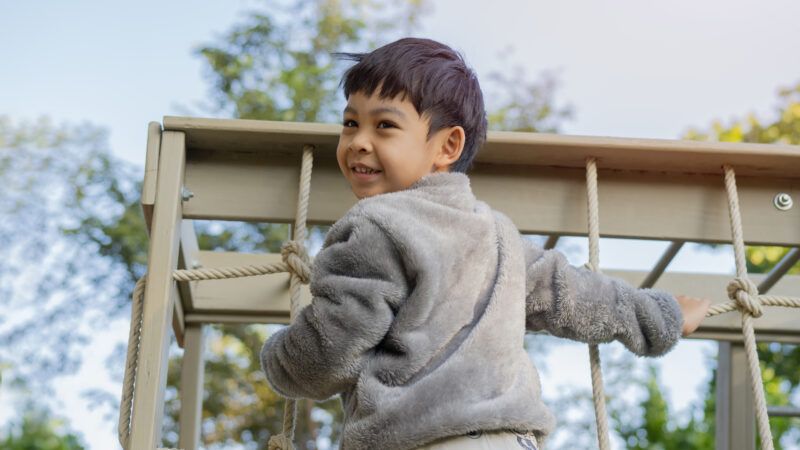Georgia Backs Bill To Reaffirm Independent Kids, Protect Free-Range Parents
"Some people think that this is not one of those things that's super important—until you're affected by it," says David DeLugas.

A few months after Georgia mother Brittany Patterson was arrested for not knowing that her son, age 10, had walked to the store on his own, the state passed a Reasonable Childhood Independence law. It now goes to the governor for signing.
The bill clarifies that "neglect" is only when you put your child in serious, obvious danger—not anytime you take your eyes off them. This protects against the modern-day helicopter parenting norms that have made passersby—and, sometimes, state officials— insist that children of almost any age need constant adult supervision.
Patterson was arrested and handcuffed in her home, in front of three of her children, after police objected to her decision to let the 10-year-old walk to the nearby town by himself. (Mineral Bluff: population 370.) When she asked the sheriff's deputy why she was under arrest, he replied, "for reckless endangerment."
Jesse Weathington, a Georgia lobbyist, heard this story and contacted Let Grow, the nonprofit I co-founded to make childhood independence easy, normal, and legal. He wanted to help pass a Reasonable Childhood Independence law in his state.
"The state should let parents be parents and kids be kids," says Weathington. "This bill will let kids today have the freedom and independence we enjoyed growing up."
David DeLugas, executive director of the National Association of Parents and attorney for Patterson, says that authorities should generally avoid taking action unless a child appears to be hurt, in distress, or in imminent danger from an identifiable source.
"Some people think that this is not one of those things that's super important—until you're affected by it," he says, noting that Patterson's kids "have been pretty traumatized by the whole ordeal."
State Sens. Jason Anavitarte (R–Dallas), Randy Robertson (R–Catuala), Kay Kirkpatrick (R–Marietta), Jason Esteves (D–Atlanta), and Eddie Lumsden (R–Armuchee) all sponsored the bill, which garnered bipartisan support, as it has in every state. That's because no matter what a person's politics might be, nobody wants their everyday parenting decisions—some perfect, some seat-of-the-pants—second-guessed by the government.
Previously, two Georgia cases besides Patterson's had made headlines for similar reasons.
In one case, Melissa Henderson, a mother of five, was arrested after she had her 14-year-old daughter babysit her four younger siblings. This was early in the pandemic when Henderson needed to work, and COVID-19 had suddenly shuttered the daycare center and schools. Her 4-year-old wandered outside to play with a neighbor and the neighbor's mom called the cops. Police handcuffed Henderson and threw her in jail. The cops said that the child, who was outside for a couple of minutes, could have been bitten by a "venomous snake."
Henderson, too, was represented by DeLugas. Three years later, the court ruled in her favor.
Meanwhile, in 2018, Beth Widner, a mother of four, was visited by the cops and child protective services after her 7-year-old, riding his bike home from swimming practice, stopped at the local grocery for a free cookie. Someone saw him unsupervised and called 911.
When the parents asked child services which specific law they had broken, the caseworker said she didn't have it written down.
Well, now the law is written down: Georgia's Senate Bill 110 states it is not neglect to trust your child with some reasonable childhood independence.
Once signed by the governor, the new law will "put Georgia in the excellent company of the eight other states that have recognized that we need some guardrails to protect families from misunderstanding what is and isn't neglect," says Let Grow's legal consultant, Diane Redleaf. "It also helps the state focus on the kids who really need its protection."


Show Comments (15)